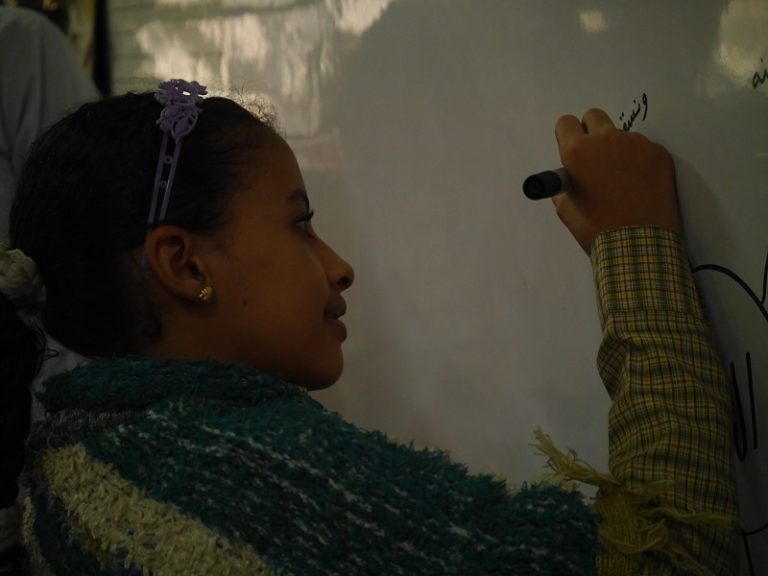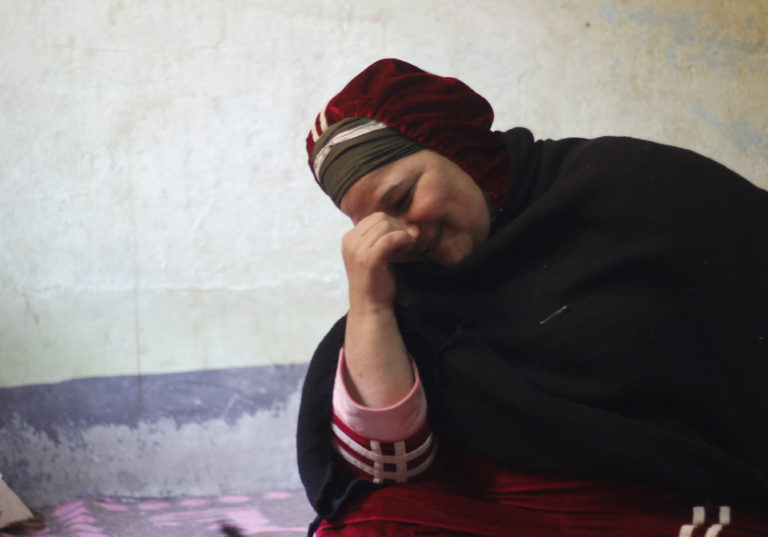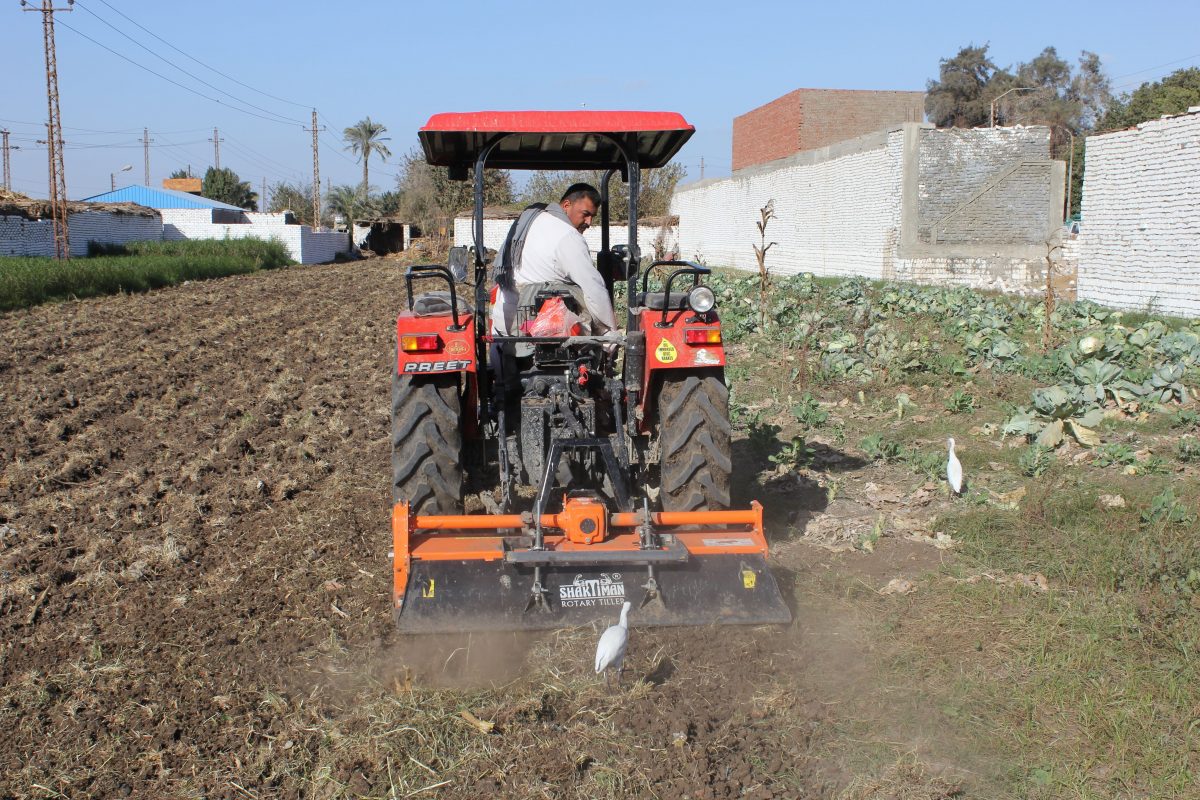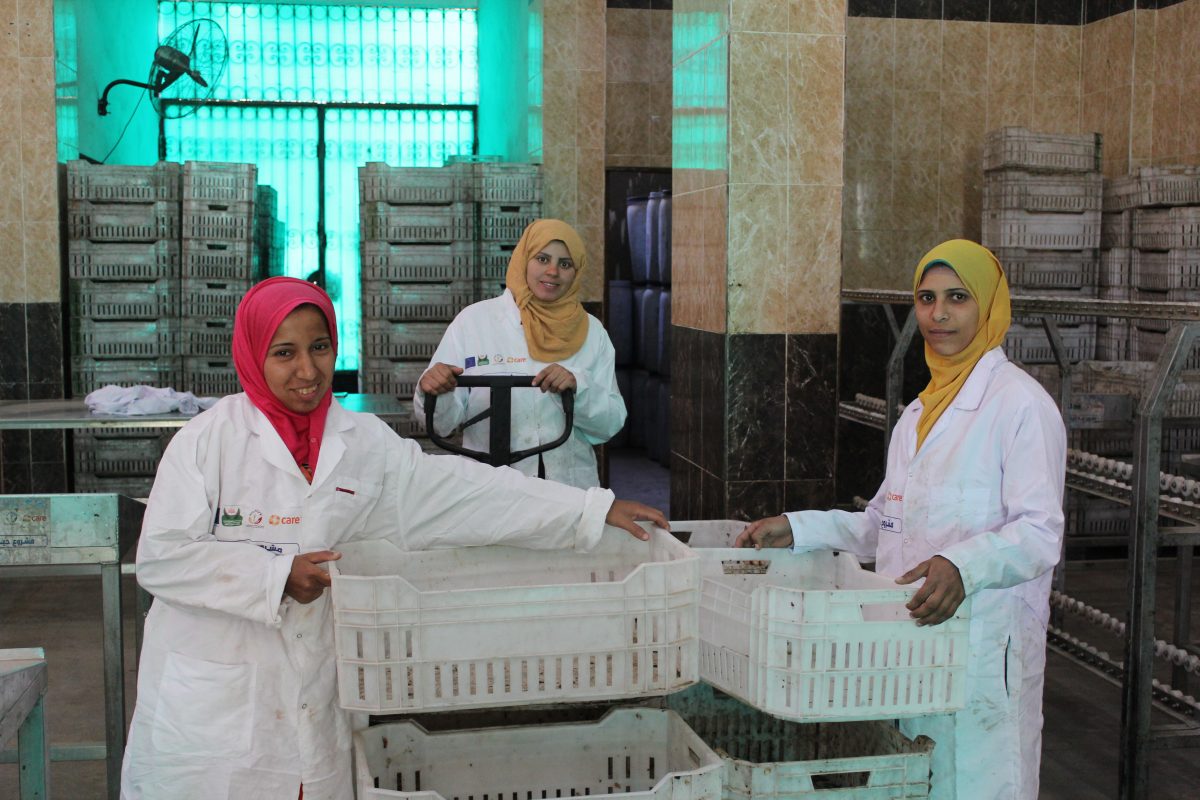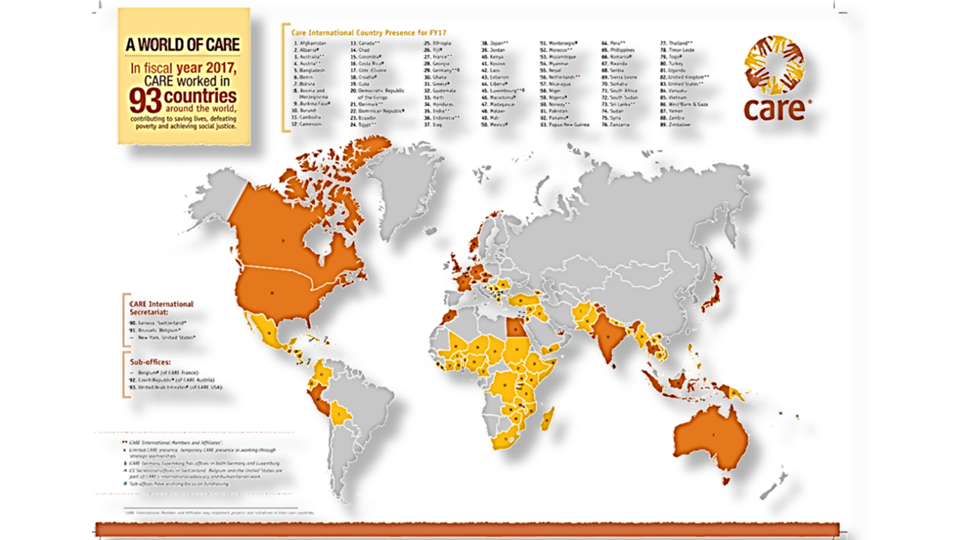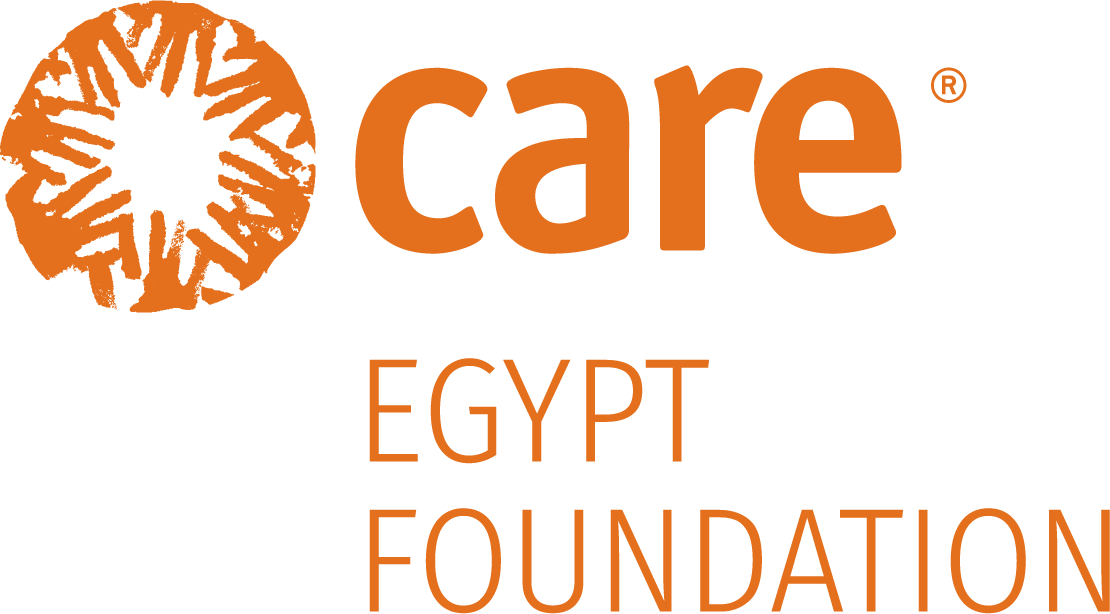In Minya, like many conservative rural areas, girls are usually not allowed to play or take part in schools’ activities.
Sondos, an 11 years old girl, attending one of the beneficiary schools of “My School and I” project, had a different experience.
Sondos saw everything in her school changing throughout the past period.
“our classrooms are more colorful and clean, our teachers are now more dedicated in their explanation and are using more interactive methods.
Also, the school’s environment became a safer one especially for girls”.
Sondos narrates to us how the teachers used to severely hit the students even for minor mistakes, believing this is the best way to raise and educate a child.
Consequently, students were very scared of the teachers and couldn’t communicate with them, which hindered the educational process.
After attending several training sessions held by the project, the teachers started realizing the fatal mistake they have been committing, and learnt that hitting doesn’t only harm the children, but is also a punishable crime by law.
“I can’t believe hitting is finally prohibited in our school, it was a nightmare that created boundaries between us and our teachers” says Sondos.
The project also trained the school’s teachers on new teaching methods and improved the school’s learning facilities, which eased up the learning process for the students and made it more interesting to them.
The readability classes which are starting at the beginning of this academic year aim to improve the reading and writing skills of the students.
Sondos works in the school’s student union, which was initiated by the project to grant the students opportunities to acquire leadership skills.
The project encouraged girls to join the union too, which gradually removed the barriers between girls and boys at school and achieved equality among them.
Sondos really loves her renovated school, however she wishes one day her school would have a music room with a piano; she has been dreaming of learning the piano for a long time, and who knows maybe one day she would grow to become a famous pianist.

